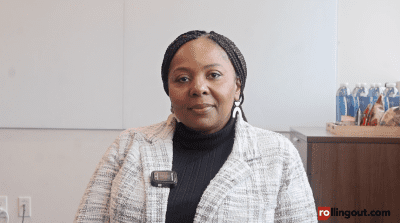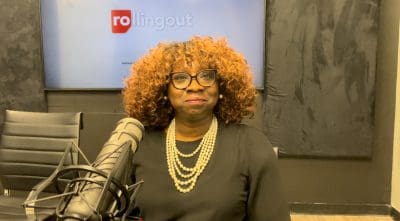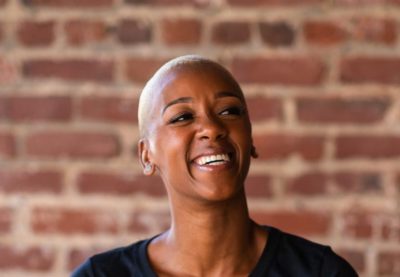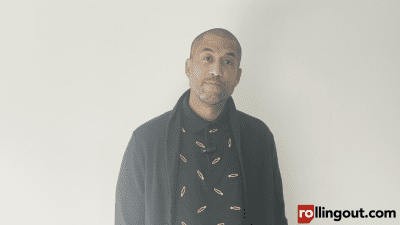
Damon Lawrence and Marcus Carey met by chance and have joined together to change the hospitality industry. This duo is creating hotel spaces that are focused on the importance of preserving African American culture. Lawrence made his foray into the hospitality industry working as a front desk agent for the Thompson Hotel Group’s Donovan House Hotel in Midtown D.C. He rose to management while working for the Ritz Carlton, Intercontinental Hotel Group & Dusit International brands. Carey has private equity and venture capital investing in his wheelhouse.
They launched Homage Hospitality in 2016, and pride themselves on creating a culturally significant hotel experience. Each decision that these businessmen make from property location, name, to room layout has a very relevant cultural purpose. The creators of Homage Hospitality spoke with us about their journey as entrepreneurs and what sets them apart.
What is Homage Hospitality and how did it come to fruition?
Damon Lawrence: I spent about 10 years in hospitality working at a number of different hotels. In 2014, I decided to take a leap and start my own hospitality management company and working on it and looking at properties in Oakland, California. Oakland had a hotel need that I saw and I wanted to do more research on. I started to spread my wings and about a year in I found my co-founder, Marcus. We are both Howard grads, but we missed each other at Howard. We met at a dinner party in Oakland and we met a week later for coffee. We realized we were both trying to do the same thing, just attacking it from different angles, from him an entrepreneurial pursuit and me from a creative standpoint. It just made sense for us to link up and do it together. We have been on that journey for the last two years now.
How did you become interested in the hospitality business?
Marcus Carey: I majored in finance at Howard, so I studied business and always knew that I’d find myself in business. I had a little bit of experience I spent sometimes in private equity out of college and I spent some time in venture capital. Ultimately what excited me most about business was those markets that are driven by culture. I’m originally from Detroit the inner city and went to school at Howard. I think we’re sort of on a never before seen train in terms of how important culture is to drive, purchasing decisions and market movements and I wanted to be a part of that. So, when Damon pitched me on what Homage could be and how Homage could look I thought, this can be the go-to choice for anyone looking for a cultural experience when they travel. The idea that this represents culture in every way and encapsulates it in a hotel property, is the perfect marriage of markets and culture. It makes perfect sense for me to be a part of.
What sets the experience at Homage aside from the experience from larger hotel groups?
Damon Lawrence: We pride ourselves on being the innovator’s inspiration. What that means is that every key touch point at our properties we want to use it as an opportunity to inspire creatives to do better work. That means equipping the rooms with tools they love to use. That means interviewing the Black creative nomads and understanding what they need in a creative workspace and using that as our design. That is something we’ve done. It goes down to the music, the scent, how accessible is music in your room, where does it play, how does it play, do you need a photo backdrop in your room.
What is the day-to-day like for you all at Homage Hospitality?
MC: As you can imagine, every day is different. Were in the middle of development on three projects. We have 102 room property in downtown Oakland that we’re looking to have open in late 2019. We are opening two small modern bed and breakfasts in New Orleans that will open this summer. Every day is incredibly different were purchasing new art or new rugs, we’re talking to cultural influencers, we’re talking to music makers because without culture we can’t do this the right way. We have a whole digital strategy that has to reflect everything that we’re talking about. Every day we’re kind of working on a different portion of that full scope.
How did you choose your property locations?
DL: We looked at cities across the nation many of which are losing their culture because gentrification is ravaging some of our premier cities and cities that we’ve known to be ours. When I say ours, I mean African American and we’re losing that. The marketplaces are forcing people out of their neighborhoods and we want to be a time capsule that encapsulates culture in that area and really preserves us and pays homage to it. That is what we did when scouted properties and Oakland was a magical fit. Staying in California made sense, and from that, New Orleans made a lot of sense as well. From there, we’ve been looking at properties in Detroit, D.C., and Brooklyn.
What advice do you have for aspiring young entrepreneurs?
MC: The truth is you just have to jump off the cliff and go do it. We are learning as we go, [and] frankly, we have no idea what we are doing, but we learn every day how to do this the right way. My advice for any young folks that think they want to be entrepreneurs specifically in hospitality is don’t get in your own way. Try to get out into the field and learn as you go because it’s a natural component of this field.
















